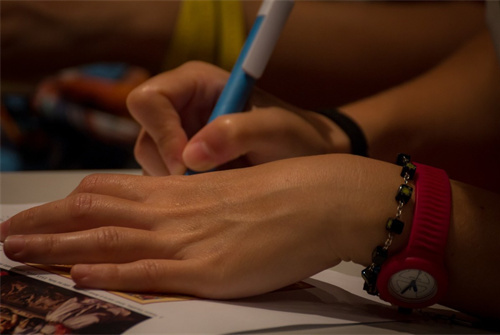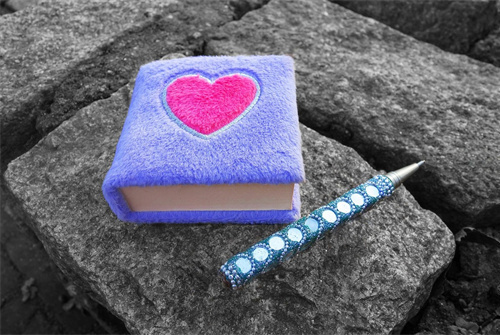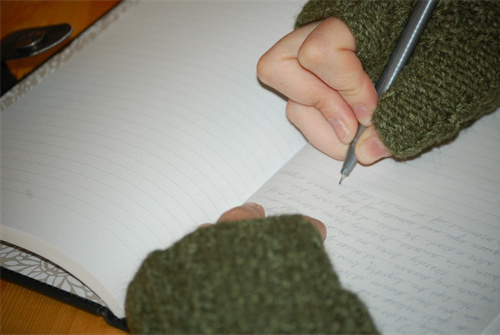英語單詞句子總結

【第1句】:初中英語單詞句子大全,越多越好
【第11句】: 動詞的時態 【第11句】:1 一般現在時的用法 1) 經常性或習慣性的動作,常與表示頻腮度的時間狀語連用。
時間狀語: every…, sometimes, at…, on Sunday。例如: I leave home for school at 7 every morning. 每天早上我七點離開家。
2) 客觀真理,客觀存在,科學事實。例如: The earth moves around the sun. 地球繞太陽轉動。
Shanghai lies in the east of China. 上海位于中國東部。 3) 表示格言或警句。
例如: Pride goes before a fall. 驕者必敗。 注意:此用法如果出現在賓語從句中,即使主句是過去時,從句謂語也要用一般現在時。
例:Columbus proved that the earth is round. 哥倫布證實了地球是圓的。 4) 現在時刻的狀態、能力、性格、個性。
例如: I don't want so much. 我不要那么多。 Ann writes good English but does not speak well. 安英語寫得不錯,講的可不行。
比較:Now I put the sugar in the cup. 把糖放入杯子。 I am doing my homework now. 我正在做功課。
第一句用一般現在時,用于操作演示或指導說明的示范性動作,表示言行的瞬間動作。第二句中的now是進行時的標志,表示正在進行的動作的客觀狀況,所以后句用一般現在時。
返回動詞的時態目錄 【第11句】:2 一般過去時的用法 1)在確定的過去時間里所發生的動作或存在的狀態。例如:時間狀語有:yesterday, last week, an hour ago, the other day, in 1982等。
例如: Where did you go just now? 剛才你上哪兒去了? 2)表示在過去一段時間內,經常性或習慣性的動作。例如: When I was a child, I often played football in the street. 我是個孩子的時候,常在馬路上踢足球。
Whenever the Browns went during their visit, they were given a warm welcome. 那時,布朗一家無論什么時候去,都受到熱烈歡迎。 3)句型:It is time for sb. to do sth "到……時間了" "該……了"。
例如:It is time for you to go to bed. 你該睡覺了。 It is time that sb. did sth. "時間已遲了" "早該……了" ,例如It is time you went to bed. 你早該睡覺了。
would (had) rather sb. did sth. 表示'寧愿某人做某事'。例如:I'd rather you came tomorrow.還是明天來吧。
4) wish, wonder, think, hope 等用過去時,作試探性的詢問、請求、建議等,而一般過去時表示的動作或狀態都已成為過去,現已不復存在。例如:I thought you might have some. 我以為你想要一些。
比較:Christine was an invalid all her life.(含義:她已不在人間。) Christine has been an invalid all her life.(含義:她現在還活著) Mrs. Darby lived in Kentucky for seven years. (含義:達比太太已不再住在肯塔基州。)
Mrs. Darby has lived in Kentucky for seven years. (含義:現在還住在肯塔基州,有可能指剛離去) 注意: 用過去時表示現在,表示委婉語氣。 1)動詞want, hope, wonder, think, intend 等。
例如: Did you want anything else? 您還要些什么嗎? I wondered if you could help me. 能不能幫我一下。 2)情態動詞 could, would。
例如: Could you lend me your bike? 你的自行車,能借用一些嗎? 返回動詞的時態目錄 【第11句】:3 used to / be used to used to + do:"過去常常"表示過去習慣性的動作或狀態,但如今已不存在。例如: Mother used not to be so forgetful. 老媽過去沒那么健忘。
Scarf used to take a walk. 斯卡夫過去常常散步。 be used to + doing: 對……已感到習慣,或"習慣于",to是介詞,后需加名詞或動名詞。
例如: He is used to a vegetarian diet. Scarf is used to taking a walk. 斯卡夫現在已習慣于散步了。 典型例題 ---- Your phone number again? I ___ quite catch it. ---- It's 695684【第42句】: A. didn't B. couldn't C. don't D. can't 答案A. 本句雖沒有明確的時間狀語,但從語意上看出,在聽的時候沒有聽懂這個動作發生在過去,因此應用過去時。
返回動詞的時態目錄 【第11句】:4 一般將來時 1) shall用于第一人稱,常被will 所代替。will 在陳述句中用于各人稱,在征求意見時常用于第二人稱。
例如: Which paragraph shall I read first? 我先讀哪一段呢? Will you be at home at seven this evening? 今晚七點回家好嗎? 2) be going to +不定式,表示將來。 a. 主語的意圖,即將做某事。
例如:What are you going to do tomorrow? 明天打算作什么呢? b. 計劃,安排要發生的事。例如:The play is going to be produced next month。
這出戲下月開播。 c. 有跡象要發生的事。
例如:Look at the dark clouds, there is going to be a storm. 看那烏云,快要下雨了。 3) be +不定式表將來,按計劃或正式安排將發生的事。
例如: We are to discuss the report next Saturday.我們下星期六討論這份報告。 4) be about to +不定式,意為馬上做某事。
例如: He is about to leave for Beijing. 他馬上要去北京。 注意:be about to do 不能與tomorrow, next week 等表示明確將來時的時間狀語連用。
返回動詞的時態目錄 【第11句】:5 be going to / will 用于條件句時,be going to表將來,will表意愿。例如: If you are going to make a journey, you'd better get ready for it as soon as possible. Now if you will take off your clothes, we will fit the new clothes 。
【第2句】:誰能幫我總結幾個英語單詞句子呀
個人品質詞匯:able 有才干的,能干的 active 主動的,活躍的 adaptable 適應性強的 adroit 靈巧的,機敏的 aggressive 有進取心的 alert 機靈的 ambitious 有雄心壯志的 amiable 和藹可親的 amicable 友好的 analytical 善于分析的 apprehensive 有理解力的 aspiring 有志氣的,有抱負的 audacious 大膽的,有冒險精神的 capable 有能力的,有才能的 careful 辦事仔細的 candid 正直的 charitable 寬厚的 competent 能勝任的 confident 有信心的 conscientious 認真的,自覺的 considerate 體貼的 constructive 建設性的 contemplative 好沉思的 cooperative 有合作精神的 creative 富創造力的 dashing 有一股子沖勁的,有拼搏精神的 dedicated 有奉獻精神的 devoted 有獻身精神的 dependable 可靠的 diplomatic 老練的,有策略的 disciplined 守紀律的 discreet (在行動,說話等方面)謹慎的 dutiful 盡職的 dynamic 精悍的 earnest 認真的 well-educated 受過良好教育的 efficient 有效率的 energetic 精力充沛的 enthusiastic 充滿熱情的 expressive 善于表達faithful 守信的,忠誠的forceful (性格)堅強的frank 直率的,真誠的friendly 友好的frugal 儉樸的generous 寬宏大量的genteel 有教養的gentle 有禮貌的hard-working 勤勞的hearty 精神飽滿的honest 誠實的hospitable 殷勤的 humble 恭順的 humorous 幽默的 impartial 公正的 independent 有主見的 industrious 勤奮的 ingenious 有獨創性的 initiative 首創精神 have an inquiring mind 愛動腦筋 intellective 有智力的 intelligent 理解力強的 inventive 有發明才能有創造力的 just 正直的 kind-hearted 好心的 knowledgeable 有見識的 learned 精通某門學問的 liberal 心胸寬大的 logical 條理分明的 loyal 忠心耿耿的 methodical 有方法的 modest 謙虛的 motivated 目的明確的 objective 客觀的 open-minded 虛心的 orderly 守紀律的 original 有獨創性的 painstaking 辛勤的,苦干的,刻苦的 practical 實際的 precise 一絲不茍的 persevering 不屈不撓的 punctual 嚴守時刻的 purposeful 意志堅強的 qualified 合格的 rational 有理性的 realistic 實事求是的 reasonable 講道理的 reliable 可信賴的 responsible 負責的 self-conscious 自覺的 selfless 無私的 sensible 明白事理的 sincere 真誠的 smart 精明的 spirited 生氣勃勃的 sporting 光明正大的 steady 塌實的 straightforward 老實的 strict 嚴格的 systematic 有系統的 strong-willed 意志堅強的 sweet-tempered 性情溫和的 temperate 穩健的 tireless 孜孜不倦的。
【第3句】:高中英語單詞、短語、總結,要全面點
我只是教你方法 積累什么的 自己去做吧 對癥下藥才是好的。 準備一本很厚本子 英語靠兩樣 一是單詞 二是語法。 本子目錄做好分類 標好頁碼 一 不認識的單詞 二 易混淆的單詞 三 單次單復數 四 單詞的過去式過去分詞 單詞一定要翻來覆去背 單詞是主干
語法也是這樣 目錄分類好幾種語法 標好頁碼 。 一種語法對應語法中的要點 和錯題 注重積累。雖然高三后面會發參考書之類的 但是 自己有精力自己做 這樣才會印象深刻。
關于短語 積累那種 一個詞組有很多意思 幾個詞組是相同意思 不會的詞組。
如果你真的不愿意做 可以買參考書 單詞短語的歸納一定是有的 高三也會給你發這種書的。
但是我想和你說 自己做加上不斷的背誦 才是最好的。
【第4句】:比較潮的英語單詞短語
Thousand times no! 絕對辦不到! Easy does it. 慢慢來。
Don't push me. 別逼我。 Have a good of it.玩的很高興。
What is the fuss? 吵什么? Still up? 還沒睡呀? It doesn't make any differences. 沒關系。 Don't let me down. 別讓我失望。
God works. 上帝的安排。 Don't take ill of me. 別生我氣。
Does it serve your purpose? 對你有用嗎? Don't flatter me. 過獎了。 Big mouth! 多嘴驢! Sure thing! 當然! I''m going to go. 我這就去。
Never mind. 不要緊。 Can-do. 能人。
Close-up. 特寫鏡頭。 Drop it! 停止! Bottle it! 閉嘴! Don''t play possum! 別裝蒜! There is nobody by that name working here.這里沒有這個人。
Break the rules. 反規則。 How big of you! 你真棒! Poor thing! 真可憐! Nuts! 呸;胡說;混蛋 Make it up! 不記前嫌! Watch your mouth. 注意言辭。
Any urgent thing? 有急事嗎? Don't over do it. 別太過分了。 Can you dig it? 你搞明白了嗎? You want a bet? 你想打賭嗎? What if I go for you? 我替你去怎么樣? Who wants? 誰稀罕? Follow my nose. 憑直覺做某事。
Gild the lily. 畫蛇添足。 I'll be seeing you. 再見。
I wonder if you can give me a lift? 能讓我搭一程嗎? I might hear a pin drop. 非常寂靜。 Why are you so sure? 怎么這樣肯定? Is that so? 是這樣嗎? Don't get loaded. 別喝醉了。
Don't get high hat. 別擺架子。 Right over there. 就在那里。
Doggy bag. 打包袋。 That rings a bell. 聽起來耳熟。
Sleeping on both ears. 睡的香。 Play hooky. 曠工、曠課。
I am the one wearing pants in the house. 我當家. It's up in the air. 尚未確定。 I am all ears. 我洗耳恭聽。
Get cold feet. 害怕做某事。 Good for you! 好得很! Help me out. 幫幫我。
Let's bag it. 先把它擱一邊。 Lose head. 喪失理智。
Talk truly. 有話直說。 He is the pain on neck. 他真讓人討厭。
You bet! 一定,當然! That is a boy! 太好了,好極了! It's up to you. 由你決定。 The line is engaged. 占線。
My hands are full right now. 我現在很忙。 Don't make up a story. 不要捏造事實。
Absence makes the heart grow fonder. 小別勝新婚。 She make a mess of things. 她把事情搞得一塌糊涂。
Get an eyeful. 看個夠。 He has a quick eye. 他的眼睛很銳利。
Shoot the breeze. 閑談。 Tell me when! 隨時奉陪! Let's play it by ear. 讓我們隨興所至。
Why so blue? 怎么垂頭喪氣? What brought you here? 什么風把你吹來了? Chin up. 不氣 ,振作些。 You never know. 世事難料。
High jack! 舉起手來(搶劫)! She'll be along in a few minutes. 他馬上會過來。 He is a fast talker. 他是個吹牛大王。
I'll get even with him one day. 我總有一天跟他扯平 She's got quite a wad. 她身懷巨款。 I don't have anywhere to be. 沒地方可去。
I'm dying to see you. 我很想見你。 Nothing tricky. 別耍花招。
Price is soaring, if it goes on like this, we shall not be able to keep the pot boiling. 物價直線上升,這樣子下去,我們鍋里可沒什么東西煮飯。 None of you keyhole. 不準偷看。
Come on, be reasonable. 嗨,你怎么不講道理。 You don't say so. 未必吧,不至于這樣吧。
Don't get me wrong. 別誤會我。 You don't seem to be quite yourself today. 你今天看起來不大對勁。
Do you have any money on you? 你身上帶錢了嗎? Dinner is on me. 晚飯我請。 Not precisely! 不見得,不一定! We have no way out. 我們沒辦法。
I hate to be late and keep my date waiting. 我不喜歡遲到而讓別人久等。 It doesn't take much of you time. 這不花你好多時間。
Not in the long run. 從長遠來說不是這樣的。 It is of high quality. 它質量上乘。
He pushes his luck. 他太貪心了。 I can't make both ends meet. 我上個月接不到下個月,缺錢。
It can be a killer. 這是個傷腦筋的問題。 You ask for it! 活該! 英語口語中好用的四詞短句 Are you by yourself? 你一個人來嗎? Are you kidding me? 跟我開玩笑啊? Back in a moment! 馬上回來! Boys will be boys! 本性難移! Come to the point! 有話直說! Do I have to? 我一定要做嗎? Don't count on me! 別指望我! Don't fall for it! 別上當! Don't get me wrong! 你搞錯了! Don't give me that! 少來這套! Don't let me down! 別讓我失望! Don't over do it! 別做過頭了! Drop me a line!要寫信給我! Easy come easy go! 來得容易去也快! Get a move on! 快點吧! Give me a break! 饒了我吧! Glad you like it! 很高興你喜歡! Great minds think alike! 英雄所見略同! He always talks big! 他老是吹牛! He's a double crosser! 他是個騙子! I cross my heart! 我發誓是真的! I just made it! 我做到了! I watch my money! 視財如命! I'll be right back! 我馬上回來! I'll check it out! 我去查查看! I'll see to it! 我會留意的! I'm down and out! 我窮困潦倒! I'm in a hurry! 我趕時間! I'm not that bad! 我沒那么差吧? I'm short on cash! 我缺錢! I've got the 。
【第5句】:人教版小學英語3
人教版小學英語單詞分類學習1學習用品(school things) pen鋼筆 pencil鉛筆 pencil case鉛筆盒 rule尺子 book書 bag包 comic book漫畫書post card 明信片newspaper報紙 schoolbag書包 eraser橡皮 crayon蠟筆 sharpener卷筆刀 story book故事書 notebook筆記本 Chinese book語文書 English book英語書 math book數學書 magazine雜志 dictionary詞典 2人體(body) foot腳 head頭 face臉 hair頭發 nose鼻子 mouth嘴 eye眼睛 ear耳朵 arm手臂 hand手 finger手指 leg腿 3顏色(colours) red紅 blue藍 yellow黃 green綠 white白 black黑 pink粉紅 purple紫 orange橙 brown棕 4動物(animals) cat貓 dog狗 pig豬 duck鴨 rabbit兔 horse馬 elephant大象 ant螞蟻 fish魚 bird鳥 eagle鷹 beaver海貍 snake蛇 mouse老鼠 squirrel松鼠 kangaroo袋鼠 monkey猴 panda熊貓 bear熊 lion獅子 tiger老虎 fox狐貍 zebra斑馬 deer鹿 giraffe長頸鹿 goosr鵝 hen母雞 turkey火雞 lamb小羊 sheep綿羊 goat山羊 cow奶牛 donkey驢 squid魷魚 lobster龍蝦 shark鯊魚 seal海豹 sperm whale抹香鯨 killer whale虎鯨 5人物(people) friend朋友 boy男孩 girl女孩 mother母親 father父親 sister姐妹 brother兄弟 uncle叔叔;舅舅 man男人 woman女人 Mr.先生 Miss.小姐 lady女士;小姐 mom媽媽 dad爸爸 parents父母grandma/grandmother(外)祖母 grandpa/grandfather(外)祖父 aunt姑姑;舅母 cousin堂(表)兄弟;堂(表)姐妹 son兒子 daughter女兒 baby嬰兒 kid小孩 classmate同學 queen女王 visitor參觀者 neighbour鄰居 principal校長 pen pal筆友 tourist旅行者 people人物 rober機器人 6職業(jobs) teacher教師 student學生 doctor醫生 nurse護士 driver司機 farmer農民 singer歌唱家writer作家 actor男演員 actress女演員 artist畫家 TV reporter電視臺記者 engineer工程師 accountant會計 policeman(男)警察 saleperson銷售員 cleaner清潔工 baseball player棒球運動員 assistant售貨員 7食品 飲料(food&drink) rice米飯 bread面包 beef牛肉 milk牛奶 water水 egg蛋 fish魚 tofu豆腐 cake蛋糕hot dog熱狗 hamburger漢堡包 French fries炸薯條 cookie曲奇餅 biscuit餅干 jam果醬coodles面條 meat肉 chicken雞肉 pork豬肉 mutton羊肉 vegetable蔬菜 salad沙拉 soup湯 ice冰 ice-crean冰淇淋 Coke可樂 juice果汁 tea茶 coffee咖啡 breakfast早餐lunch午餐 supper晚餐 dinner正餐 8水果 蔬菜(fruit&vegetables) apple蘋果 banana香蕉 pear梨 orange橙 watermelon西瓜 grape葡萄 eggplant茄子green beans青豆 tomato西紅柿 potato土豆 peach桃 strawberry草莓 cucmber黃瓜 onion洋蔥 carrot胡蘿卜 cabbage卷心菜 9衣服(clothes) jacket夾克衫 shirt襯衫 T-shirtT恤衫 skirt短裙子 dress連衣裙 jeans牛仔褲 pants長褲 socks襪子 shoes鞋子 sweater毛衣 coat上衣 raincoat雨衣 shorts短褲 sneakers運動鞋 slippers拖鞋 sandals涼鞋 boots靴子 hat(有沿的)帽子 cap便帽 tei領帶 scarf圍巾 gloves手套 10交通工具(vehicles) bike自行車 bus公共汽車 train火車 boat小船 ship輪船 yacht快艇 car小汽車 taxi出租車 jeep吉普車 van小貨車;面包車 plane飛機 subway地鐵 motorcycle摩托車 11雜物(other things) window窗戶 door門 desk課桌 chair椅子 bed床 computer計算機 board木板 fan風扇 light燈 teachdr's desk講臺 picture圖畫;照片 wall墻壁 floor地板 curtain窗簾 trash can垃圾箱 closet壁櫥 mirror鏡子 football足球 present禮物 walkman隨身聽 lamp臺燈 phone電話 sofa沙發 shelf書架 fridge冰箱 table桌子 TV電視 air-conditioner空調 key鑰匙 lock鎖 photo照片 chart圖表 plate盤子 knife刀 fork叉 spoon勺子 chopsticks筷子 pot鍋 gift禮物 toy玩具doll洋娃娃 ball球 balloon氣球 kite風箏 jigsaw puzzle拼圖游戲 box盒子 umbrella傘 zipper拉鏈 violin小提琴 yo-yo溜溜球 nest鳥窩 hole洞 tube管子 toothbrush牙刷 menu菜單 e-card電子卡片 e-mail電子郵件 traffic light交通燈 money錢 medicine藥 sunglasses太陽鏡 12地點(locations) home家 room房間 bedroom臥室 bathroom衛生間 living room起居定 kitchen廚房 classroom教室 school學校 park 公園 library圖書館 post office郵局 hospital醫院 cineama電影院 bookstore書店 farm農場 zoo動物園 garden花園 study書房 playground操場 canteen食堂 teacher's office教師辦公室 gym體育館 wsahroom衛生間 art room繪畫教室 computer room計算機教室 music room音樂教室 Tv room電視機房 flat 公寓 company公司 factory 工廠 fruit stand水果攤 pet shop 寵物商店 nature park 自然公園 theme park主題公園 science museum科學博物館 the Great Wall長城 supermarket 超市 bank銀行 country國家 village鄉村 city城市 13課程(courses) sports體育運動 science科學 Moral Education思想品德課 Social Strudies社會課 14國家 城市 (countries&cities) China/PRC中國 America/USA美國 UK聯合王國 England英國 Canada加拿大 Australia澳大利亞 New York紐約 London倫敦 Sydney悉尼 Moscow莫斯科 Cairo開羅 15氣象() cold寒冷的 warm溫暖的 cool涼爽。
【第6句】:英語單詞短語語法句子
一. 詞匯 ⑴ 單詞 【第1句】: 介詞:in, on, under, behind, near, at, of 1). in表示"在……中", "在……內"。
例如: in our class 在我們班上 in my bag 在我的書包里 in the desk 在桌子里 in the classroom 在教室里 2). on 表示"在……上"。例如: on the wall 在墻上 on the desk 在桌子上 on the blackboard 在黑板上 3). under表示"在……下"。
例如: under the tree 在樹下 under the chair 在椅子下 under the bed 在床下 4). behind表示"在……后面"。例如: behind the door 在門后 behind the tree 在樹后 5). near表示"在……附近"。
例如: near the teacher's desk 在講桌附近 near the bed 在床附近 6). at表示"在……處"。例如: at school 在學校 at home 在家 at the door 在門口 7). of 表示"……的"。
例如: a picture of our classroom 我們教室的一幅畫 a map of China 一張中國地圖 【第2句】: 冠詞 a / an / the: 冠詞一般位于所限定的名詞前,用來署名名詞所指的人或事物。冠詞有不定冠詞和定冠詞兩種。
不定冠詞有兩個形式,即a和an。a用在以輔音音素開頭的詞前,如a book; an用在以元音音素開頭的字母前,如an apple. a或an與可數名詞單數連用,泛指某類人或某物中的一個。
This is a cat. 這是一只貓。 It's an English book. 這是一本英語書。
His father is a worker. 他的爸爸是個工人。 the既可以用在可數名詞前,也可以用在不可數名詞前,表示某個或某些特定的人或事物,也可以指上文提到過的人或事物。
Who's the boy in the hat? 戴帽子的男孩是誰呀? ------ What can you see in the classroom? ------ I can see a bag. ------ Where's the bag? ------ It's on the desk. ------- 你能在教室里看到什么呀? ------ 我能看見一個書包。 ------ 書包在哪呀? ------ 在桌子上。
【第3句】:some和any ①在肯定句中用some.例如: There are some books on the desk.桌子上有一些書。 Lucy has some good books露西有一些好書。
②在疑問句和否定句中用any。例如: Is there any ink in your pen?你的鋼筆里有墨水嗎? Do you have any brothers and sisters?你有兄弟姐妹嗎? There isn't any water in the glass.杯子里沒有水。
⑵記住它們的特殊用法。 ①some亦可用于表示盼望得到對方肯定的答復或表示建議、委婉請求的疑問句中,這一點我們不久就會學到。
例如: Would you like to have some apples?你想吃蘋果嗎? ②any也可用于肯定句中,表示"任何的"。例如: Any one of us can do this.我們當中任何一個都能做這個。
some 和any的用法是經常出現的考點,希望大家能準確地掌握它們的用法。 【第4句】:family family看作為一個整體時,意思是"家庭",后面的謂語動詞be用單數形式 is ;如把family看作為家庭成員時,應理解為復數,后面的謂語動詞be應用are。
My family is a big family. 我的家庭是個大家庭。 My family are all at home now. 我的家人現在都在家。
Family強調由家人組成的一個集體或強調這個集體中的成員。home指個人出生、被撫養長大的環境和居住地點。
house指"家"、"房屋",側重居住的建筑本身。 His family are all workers. 他的家人都是工人。
My home is in Beijing. 我的家在北京。 He isn't at home now. 他現在不在家。
It's a picture of my family. 這是一張我全家的照片。 【第5句】: little的用法 a little dog 一只小狗,a little boy 一個小男孩。
little常用來修飾有生命的名詞。 *但little還可表示否定意義,意為"少的",加不可數名詞。
There is little time. 幾乎沒時間了。 There is little water in the cup. 杯中水很少。
⑵ 詞組 on the desk 在桌子上 behind the chair 在椅子后 under the chair 在椅子下面 in her pencil-box 在她的鉛筆盒中 near the door 在門附近 a picture of a classroom 一個教室的圖片 look at the picture 看這張圖片 the teacher's desk 講桌 a map of China 一張中國地圖 family tree 家譜 have a seat 坐下,就坐 this way 這邊走。
【第7句】:英語總結單詞
1take back 收回,接回,退回。
如 They wouldn't take back the shirt. 襯衫他們不讓退貨。【第2句】: take down (1) 寫下,記下。
如:He took down everything the teacher said. 他把老師說的所有話都記了下來。(2) 拆下,拆掉。
【第3句】: take in (1) 收留。(2) 包括。
(3) 理解。(4) 欺騙,使上當。
【第4句】: take off(1) 脫下。如:(2) 起飛。
如:When did the plane take off? 飛機是什么時候起飛的? (3) 打折扣,扣掉,去掉。如:Can you take five dollars off the price? 你可以減價五美元嗎? (4) 請假,休息。
如:I want to take a day off (from work). 我想休假一天。【第5句】: take on (1) 聘用,雇用。
如:The company decided to take on a new secretary. 這家公司決定聘一個新秘書。(2) 呈現,顯現,具有。
如:This word had taken a new meaning. 這個詞有了新的意義。Her face took on a new expression. 她的臉上露出了新的表情。
(3) 承擔或擔任(工作或責任等)。如:He advised me not to take too much work. 他勸我不要做太多的工作。
【第6句】: take over 接替,接管,繼承。如:Who will take over his job? 他的工作由誰來接替? Would you like me to take over the driving for a while? 你愿意讓我接替你開一會兒車嗎? 【第7句】: take to(1) 喜歡。
如:He took to Mary as soon as they met. 他一見瑪麗就愛上了她。(2) 養成習慣,沉溺于。
如:He soon took to drinking again. 不久他又喝起酒來。(3) 去(某處)。
如:He was ill and had to take to bed. 他病倒了,只好臥床。【第8句】: take up (1) 開始(學習或從事等)。
如:He dropped medicine and took up physics. 他放棄學醫,開始學物理。For a long time I had wanted to take up writing. 很久以來我一直想從事寫作。
(2) 繼續。如:We took up our journey the next day. 第二天我們繼續趕路。
This chapter takes up where the last one left off. 本章接續上一章談到的內容。(3) 占去(時間或空間)。
如: The table takes too much room. 這桌子太占地方了。The work took up all of Sunday. 這活兒占去了整個星期天。
(4) 接納(乘客等),接受(挑戰,建議,條件等)。如:The bus stopped to take up passengers. 公共汽車停下來讓乘客上車。
He has taken up the bet. 他已接受打賭的條件。(5) 提出(商討),討論。
如:There's another matter which we ought to take up. 還有一件事我們要提出來商量。【第9句】: take sb sth / take sth to sb 給某人帶(送)去某物。
如:Take your father this glass of water. / Take this glass ofwater to your father. 把這杯水給你父親送去。Take her some flowers. / Take some flowers to her. 帶一些花給她。
【第10句】: take sb (sth) for [to be]……把某人(某物)當作……。如:He took her smile for agreement. 他把她的微笑視為同意。
Of course I didn't tell her your secret ---- what do youtake me for? 當然我沒有把你的秘密告訴她---你都把我當什么人了? I took him for an honest man [to be honest]. 我看他為人老實。I took him for Mr Smith. 我錯把他看成是史密斯先生。
注:按傳統說法:take……for 往往指不合事實地“錯誤認為”,而 take……to be [as]則可能指正確地也可能指不正確地“認為”,但現代英語已不完全遵循此規則。【第11句】: It takes (sb) some time to do sth 做某事花(某人)時間。
如:It took me two hours to do the maths exercises. 做數學練習花了我兩個小時。It will take three hours to go there by bus. 坐公共汽車去要花三個小時。
注:該句型在現代英語中可有多種變體。比較:It took him half an hour to mend his bike. / It took half an hour for him to mend the bike. 他修理自行車花了半個小時。
It took him 10 minutes to solve the problem. / He took 10 minutes solving [to solve] the problem. 他花10分鐘解出了這道題。It took me an hour to write the letter. / The letter took me an hour (to write). / I took an hour to write the letter. 我寫這封信花了一個小時。
按傳統語法,以上句型只用于花時間,不用于花錢,但這在現代英語中已有所改變。【第12句】: It takes sth (sb) to do sth 某做某事花精力(需要人等)。
如。








